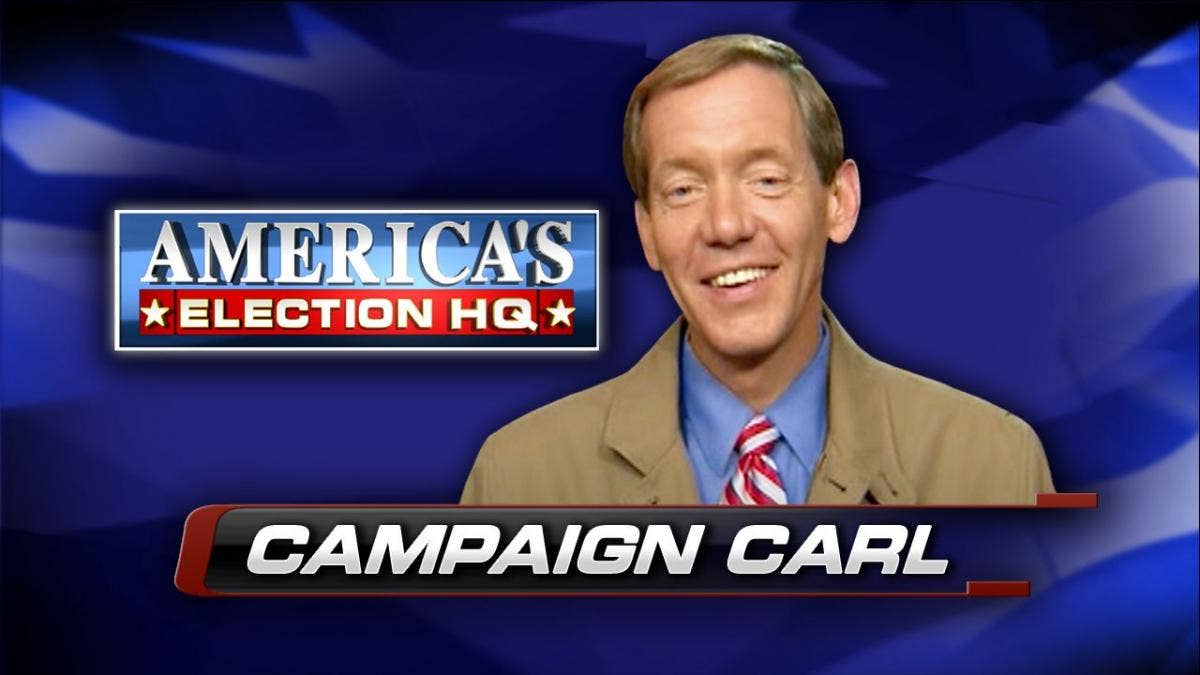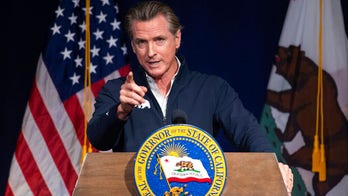
The political art form of when and how to announce a presidential campaign is a delicate, but important decision. Some candidates choose to do it with an internet video, others do television shows or rallies, and some want to be the first, while others prefer to be the last. But no matter how they do it, every detail is dissected, trying to avoid any misstep and make sure the campaign picks the right TV show, the right location with the perfect backdrop and that the candidate is wearing just the right suit color.
AEHQ wanted to get some analysis from our own Campaign Carl, putting this year's timetable in perspective to previous ones and seeing what's at stake in how a candidate chooses to make his or her launch for 1600 Pennsylvania Avenue.
The political world is watching and waiting for 2012 hopefuls to jump in with the possibility that Thursday former Republican House Speaker Newt Gingrich would make his announcement in Atlanta. However, mixed messages from his campaign left more questions than answers with Gingrich pretty much just whispering his presidential exploration instead of shouting his formal plans.
Herman Cain, Republican Godfather pizza business man is the only candidate who has expressed his interest in running so far.
By this time last campaign cycle, nearly 20 had candidates had publicly already stated their plans and several were in full-campaign mode. Why have Tim Pawlenty, Sarah Palin, and Mitt Romney all waited to make their plans known?
Let's have Campaign Carl break it all down for us.
AEHQ: Why is it important when and how candidates decide to launch a campaign?
CARL: First off, by the time a candidate files federal paperwork forming a "Presidential Exploratory Committee" (which creates a legal framework to raise and spend money) they have already gauged the level of interest and cash they can expect to receive through early visits to key states, meetings, private polls, phone calls and more. The formation of an exploratory is their first informed signal and a commitment to go forward based on that invisible period of gauging the earliest glimmers of hope.
Becoming an early explorer wins attention and alerts voters that a hopefuls' efforts are escalating and will need more support. But it also invites more scrutiny and often triggers the first salvo of attacks from potential rivals and interest groups with divergent views. Waiting too long can be interpreted as indecision, lack of fire in the belly or insufficient positive feedback from key constituencies to move ahead.
AEHQ: What about what not to do - what should candidates avoid?
CARL: The appearance of disinterest in key early states. The leadoff states of Iowa, New Hampshire and South Carolina are jammed with voters who want to measure each candidate in depth. The trail is littered with the carcasses of candidates who failed to sufficiently retail campaign early and often in the first in the nation states.
Being an early frontrunner however is equally risky. The leadoff states are notorious for rejecting juggernaut campaigns who assume an air of inevitability, so candidates who hope to be first across the finish line at the end of the marathon are often smart to avoid a starting line sprint to the front of the pack.
AEHQ: How is this year's cycle different than 2008 or years past?
CARL: The start is a little slower than the last race when both parties had competitive races and very crowded fields at this point.
This time round the GOP candidates expect they'll need to raise and spend at least a $100B to win the nomination.
They are not in a hurry to start spending wildly now when they know the costly air-war will not even heat up till the Iowa Straw poll in Ames later this summer.
There are also lot of well-known retread hopefuls, Sarah Palin, Mike Huckabee, and Mitt Romney were on the WH trail last time. Gingrich has flirted with running for years. They are well known in the early states and hope their familiarity will allow them in the short term to remain lower profile.
Tim Pawlenty, Rick Santorum and Haley Barbour are examples of lesser known hopefuls who are aggressively working the diner and rotary club circuit to raise their profiles while the demand is high in early states but the field is still forming.
AEHQ: What about choosing NOT to run, is that announcement and timing also important?
CARL: How far one goes before bowing out and the profile cut in the process is important as a way of positioning as a king maker and potential running mate. Any hopeful who contributes to the debate, acquits him or herself well, makes few enemies and inspires voters...will be remembered when shortlists for VP are compiled. Plus it's a good way to land on TV for the general election as an analyst with experience in the arena and to boost speaking fees and book sales.
AEHQ: There's a lot of talk about the GOP field jumping in this year, but President Obama also will formally start his re-election campaign, what's at stake for an incumbent's announcement?
CARL: President Obama must convince voters that in this time of economic hardship the nation should not change horses in midstream. He'll argue that the hope and change he promised is a work in progress and require a second term to strengthen, if not complete. Polls suggest the race will be close. Congressional redistricting will tilt the electoral college map slightly toward the GOP compared to last time and the crucial general election states of Ohio and Pa now have republican governors. The timing of Mr. Obama's announcement is not nearly as significant as the timing of the economic recovery and the WH now expects unemployment to be about 8.5% next year. That will be an historic high for a presidential election year and a lot of voters will be looking for a new horse.




